Discover essential insights before diving into the world of white concrete countertops for your home! Uncover the advantages and disadvantages of incorporating cement countertops in your kitchen.
If you’re contemplating this design choice, this blog post is a must-read. Drawing from my firsthand experience of living with concrete countertops for years, I provide a detailed account of their durability and offer a cost analysis breakdown. Interestingly, you might be surprised to learn that they don’t come significantly cheaper than traditional options like granite or marble!
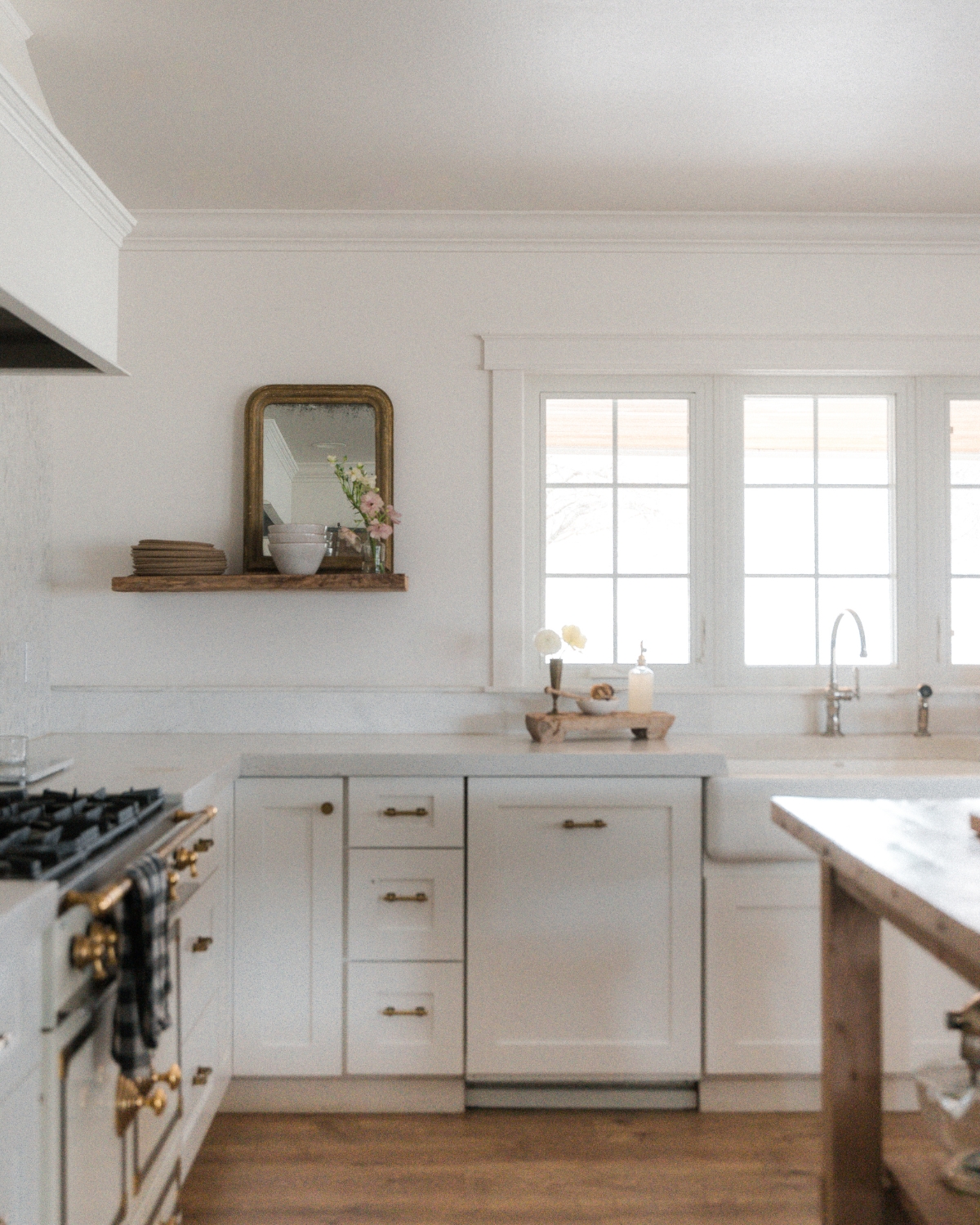
White Concrete Countertops (Cement Countertops)
Embarking on the journey of selecting countertops for your kitchen or bathroom? You’ve landed on the right page. In this post, I’ll candidly share the experiences and nuances of living with white concrete countertops after having them installed in my own home. While I’ve grown to truly love them, it’s essential to be aware of the drawbacks before making the decision to integrate them into your kitchen.
Cost Considerations:
Dispelling the Myth of Affordability
First and foremost, let’s address the often misunderstood cost of concrete countertops. There’s a common misconception that they are a budget-friendly alternative, particularly if you’re not opting for a DIY approach and using countertop-specific cement.
The reality is that the cost of shipping the specialized concrete mix, not readily available in hardware stores, along with labor and sealant expenses, accumulates swiftly. Our personal experience revealed that white concrete countertops can be quite expensive once all factors, including labor, are taken into account. If your motivation for considering cement countertops is solely based on the assumption of affordability compared to other options, a word of caution: it might not be the cost-effective choice you anticipate. Find my list of supplies, steps, and tips.
The Aesthetics:
Embracing Imperfections for a Unique Appeal
Moving beyond cost, let’s delve into the aesthetic aspects of concrete countertops. Before deciding on white concrete countertops for your kitchen, it’s crucial to wholeheartedly love their unique beauty. These countertops present a perfectly imperfect surface, reminiscent of delicate marble, showcasing the distinct aspects of the white color palette.
Expect to see the character of your white concrete countertops unfold with features like hairline cracks, subtle rippling from the leveling process during pouring, and intriguing pepper flakes of aggregate. It’s this distinctive charm that sets concrete apart and gives your kitchen a one-of-a-kind aesthetic.
As you consider the pros and cons of concrete countertops, stay tuned for insights into their heat-resistant properties, customization potential, and more. We’ll navigate through the nuances, helping you make an informed decision for your home improvement journey.
Maintenance and Repair:
Nurturing the Resilience of Concrete Countertops
While the aesthetic appeal and unique qualities of white concrete countertops are captivating, understanding how to care for and address potential issues is paramount for their longevity. Concrete countertops, particularly in white, demand meticulous attention to sealing, acting as a protective barrier against stains and scratches. Regular inspections for signs of wear or flaking in the sealant, especially in high-use areas, ensure the surface remains resilient over time. Concrete’s inherent nature to develop hairline cracks requires vigilant attention, with regular inspections and timely repairs to maintain both visual appeal and structural integrity. Swiftly address spills and stains using a mild pH-neutral cleaner suitable for concrete surfaces, avoiding abrasive cleaners to preserve the surface finish. While red wine stains might be a reminder of a great dinner party, you might not want it there forever! Engaging professional assistance for repairs and maintenance can be invaluable, ensuring thorough and lasting solutions. By incorporating these maintenance practices, you can enhance the lifespan of your concrete countertops, allowing you to continue enjoying their unique beauty for years to come while upholding both aesthetic appeal and functionality.
Trying to decide between quartz or cement countertops?
I personally love the cement surface more than the quartz counters we have in our laundry room. Cement is a beautiful option, but make sure you’re aware of all the quirks of concrete countertops before installing them in your home! It’s worth noting that these quirks can actually make concrete countertops an excellent choice for those seeking a unique look and a natural stone aesthetic, making them a great custom countertop option, especially if it’s your first time considering unconventional countertops.
Beyond their quirks, consider the potential for these countertops to serve as a canvas for creativity, particularly when envisioning custom countertops.
Customization adds a layer of personalization that can transform your kitchen or bathroom into a truly unique space. Concrete countertops, in particular, have gained recognition for their versatility in achieving tailored designs. Exploring the possibilities within the realm of custom countertops offers a pathway to individuality and style.
As you navigate the choices for your home improvement project, tapping into a deep understanding of the nuances surrounding custom countertops can guide you toward an informed decision. Collaboration with professionals who appreciate the intricacies of customization ensures that your countertop not only enhances the aesthetics but also aligns seamlessly with your lifestyle.
Whether you’re revamping your kitchen or embarking on a renovation journey, embracing the potential for customization allows you to create a space that not only suits your personal style but also stands as a testament to thoughtful design.
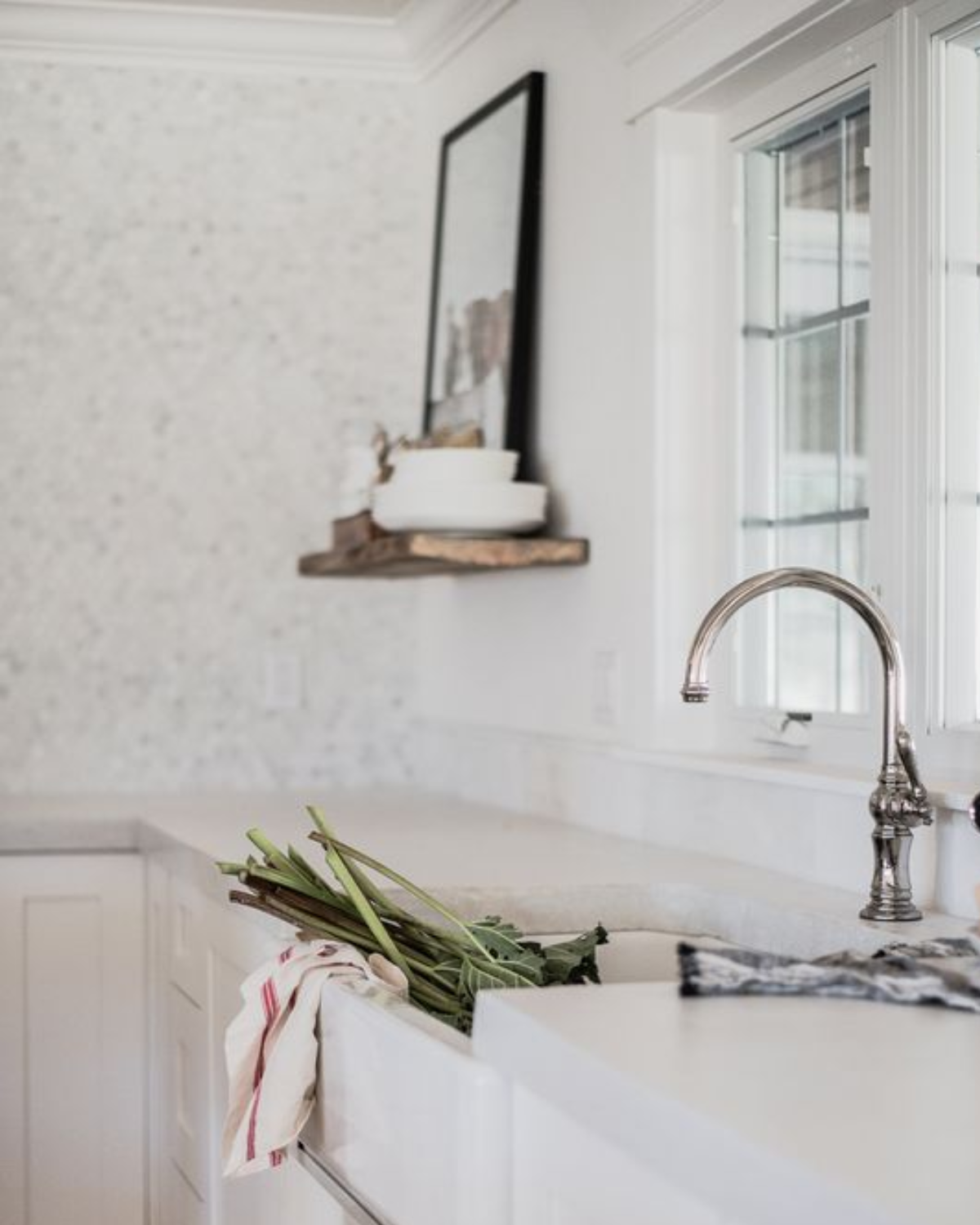
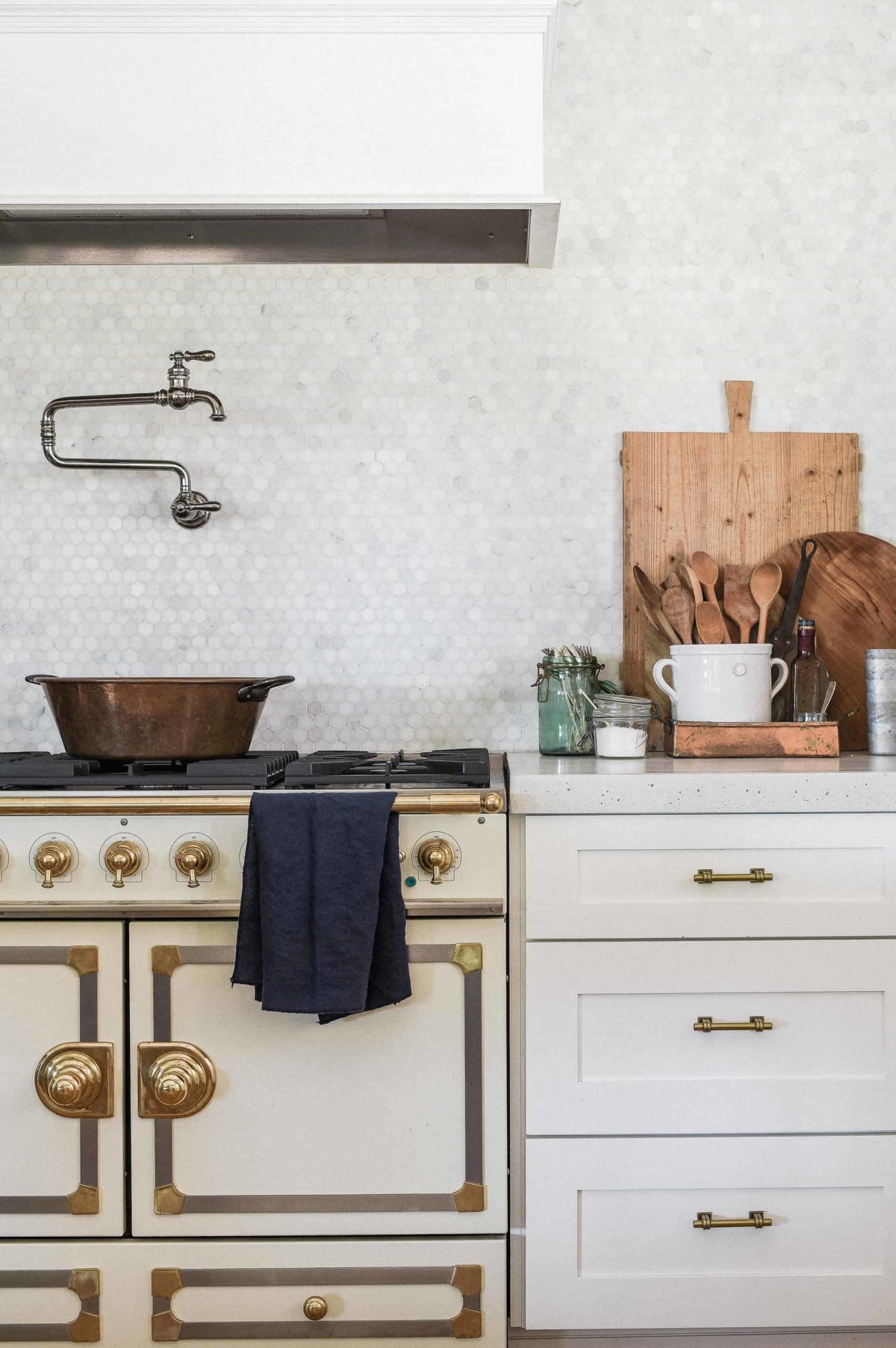
Pros of White Concrete Countertops
Concrete (cement) countertops are beautiful and unique!
I have cement, marble, and quartz in my home – and I absolutely love the cement just as much as I love the marble! Our white concrete countertops are very beautiful and seem to have a personality of their own. It really is a statement element in our kitchen, and I love the unique imperfections that make the countertops have old-world charm in a modern way.
You can DIY concrete countertops
I was initially drawn to concrete for our countertops because it seemed like a simple project that would be less expensive than selecting a stone countertop. While this didn’t necessarily pan out to be true (they were actually quite expensive), concrete countertops are something that can be DIY’d!
If you’d like to DIY this kitchen project, I would recommend reading as much as you can about concrete countertops and watching as many videos as you can. I would also recommend finding a friend experienced in pouring concrete to help you if you don’t have any experience of your own, especially if it’s your first time attempting the DIY route.
Personally, I didn’t want to take any chances on something so permanent, so we hired a contractor. Even with an experienced crew helping us, we still faced quite a few challenges during the process.
Average Cost Considerations
If you’re considering white concrete countertops, it’s essential to factor in the average cost per square foot (sq ft). Contrary to common belief, the expenses involved can add up quickly. Shipping specialized concrete, labor costs, and sealant expenses contribute to the overall investment. While the allure of DIY might suggest cost savings, it’s crucial to be realistic about the associated expenses, especially if it’s your first time delving into unconventional countertop materials.
When evaluating the average cost per square foot provides a comprehensive view of the financial investment required for your project. While the allure of DIY might suggest potential cost savings, it’s crucial to be realistic about the associated expenses involved in every square foot of the countertop. Whether it’s your first time embarking on a home improvement endeavor or you’re a seasoned DIY enthusiast, a detailed consideration of sq ft expenses allows you to budget effectively and plan for a successful implementation of your unique white concrete countertops.
Heat Resistant Properties
Another significant advantage of white concrete countertops is their heat-resistant properties. Unlike some countertop materials, concrete can withstand high temperatures. This makes it an excellent choice for a kitchen where hot pans and pots are frequently placed on the surface. While it’s important to note that extreme or prolonged exposure to high temperatures can still cause damage, concrete countertops generally exhibit good heat resistance.
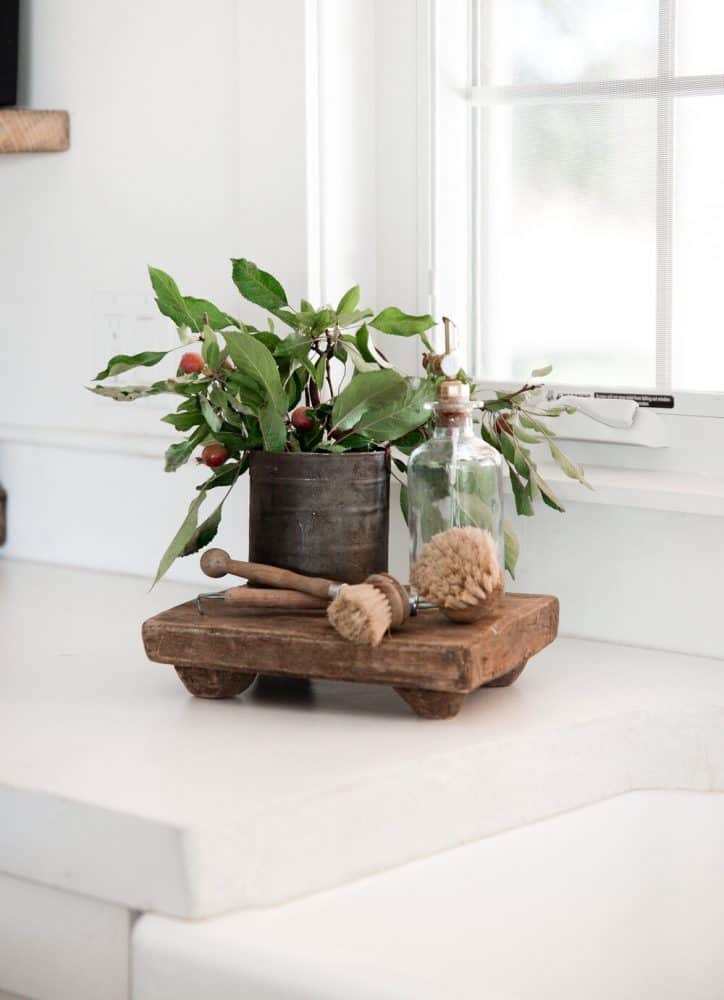
Cons of White Concrete Countertops
Cement is permanent
Cement is a popular choice as a countertop surface right now, but in ten years, it might feel dated and old, and removing it will be difficult. The cement is heavy and if poured into place, is permanent! It will take a jackhammer and some serious muscles to remove the countertops, most likely damaging the cabinets beyond repair. This means that you won’t be able to update the countertops without demoing the entire kitchen. So be prepared to live with them for a long time!
Concrete countertops scratch & stain easily
This is especially true for white concrete countertops! Cement is actually a pretty fragile surface that stains and cracks easily. It is also highly absorbent and must be sealed before you can use it in your kitchen to make your countertops more stain-resistant. While I find the scratches to be charming, stains on the countertops really take away from their beauty.
If you’re considering cement countertops for your kitchen, be prepared to treat them quite delicately. They are not durable like quartz. Think of them more like marble!
Sealing cement properly is difficult
You might be thinking, “if the countertops are sealed properly, they won’t stain or scratch!”…This is theoretically true, but finding a great sealant is very difficult!
I have done lots of research on this, and even after sealing our white concrete counters with the StoneLok system (supposedly heat and scratch-resistant), I can attest that they are still much more delicate than you’d think.
The sealant has flaked off in some places and must be sanded down and reapplied periodically to protect the cement and keep the surface sanitary.
Cement cracks
Cement inherently cracks; it’s just what cement does. Be prepared to see cracks in your cement countertops. This doesn’t bother me in our kitchen, but if you are a Type A person, you should be aware of this before installing them in your home!
Your Journey
In your journey of home improvement, whether revamping the kitchen or embarking on a renovation project, an informed decision is key. White concrete countertops offer a unique canvas for creativity, but the quirks and challenges should be embraced with open eyes. For best results, a consultation with professionals and a deep understanding of customization nuances ensure that your chosen countertops not only enhance aesthetics but also seamlessly align with your lifestyle. As you embark on this exciting venture, may your decision stand as a testament to thoughtful design, creating a space that resonates with your unique style and preferences.
In the realm of home improvement, whether you’re transforming your kitchen or undertaking a renovation project, an informed decision is key. White concrete countertops featuring glass fragments or fibers present a canvas for creativity, and while the quirks and challenges, such as shrinkage cracks, should be acknowledged, they can be embraced with open eyes. For optimal results, consulting with professionals who understand the nuances of customization ensures that your chosen countertops not only enhance aesthetics but also seamlessly align with your lifestyle.
Contemplating modern concrete kitchen countertops as an alternative? These high-end materials, available in a variety of finishes and the option of lighter shades, offer a different look. Incorporating glass fragments or fibers can add unique features to the surface. While they share the basics of traditional concrete countertops, the modern variations provide additional benefits, making them a good idea for a contemporary kitchen.
Conclusion
The bottom line: Whether you choose traditional or modern concrete countertops, understanding your kitchen dimensions, exploring the variety of colors and finishes available, and considering additional features such as glass fragments and air bubbles are crucial steps. It’s essential to weigh the added benefits of each surface material, including massive slabs, against potential drawbacks like wet concrete during installation. Keep in mind that concrete countertops, being a natural material, require annual sealing to maintain their resilience.
As you embark on this exciting venture, may your decision stand as a testament to thoughtful design, creating a space that resonates with your unique style and preferences. Here’s the verdict: modern concrete countertops, with their added features and high-end appeal, can be a fantastic addition to your kitchen, providing both functionality and aesthetics in a single, innovative package.
Explore all about Paints and Finishes
Be sure to check out our paint-related articles to dive deeper into color trends, techniques, and tips for your next project! Whether you’re looking to refresh your living room or discover the best finishes for your exterior, we’ve got you covered. Stay inspired and get the best advice for all your painting projects!
Designer’s Review: Sherwin Williams Pure White SW7005
The Best Red Paint Color Ideas to Transform Your Space
A Designer’s Guide to the Best Warm White Paint Colors
How to Choose the Best Interior Paint Colors for Your Home
A Green Bathroom Remodel You’ll Love
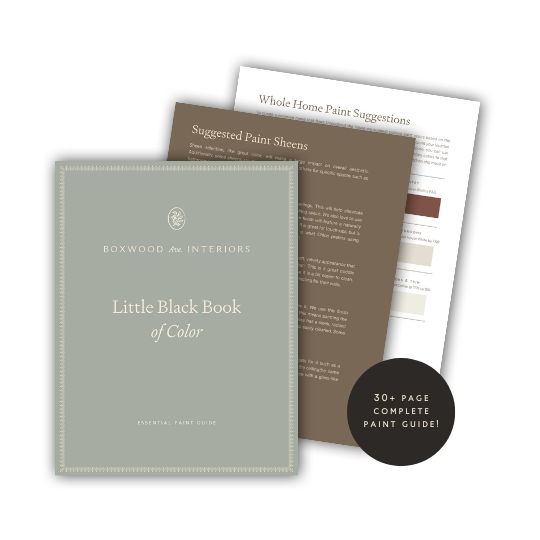
instant download
Little Black Book of Color
Download our free paint guide! Get our expert guidance for your entire home with our 30 page paint guide.
The exclusive Boxwood Avenue paint guide to achieve a perfectly cohesive palette in your home!
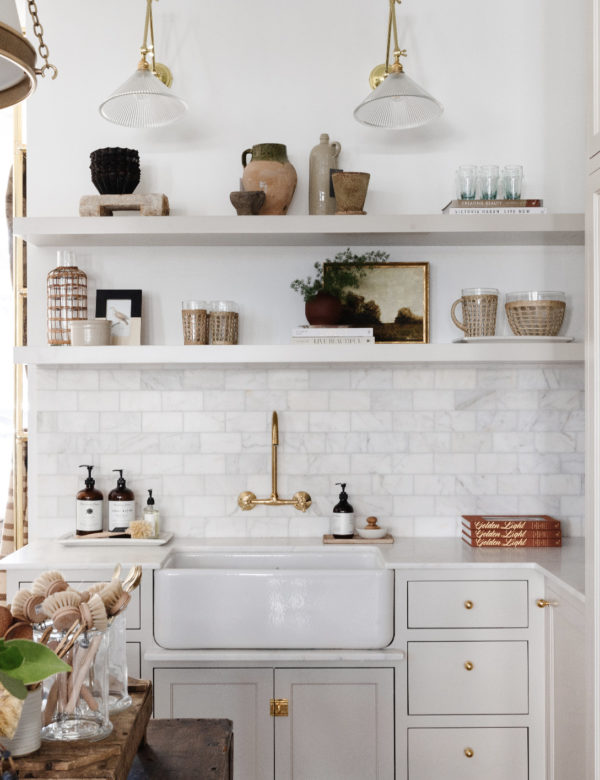
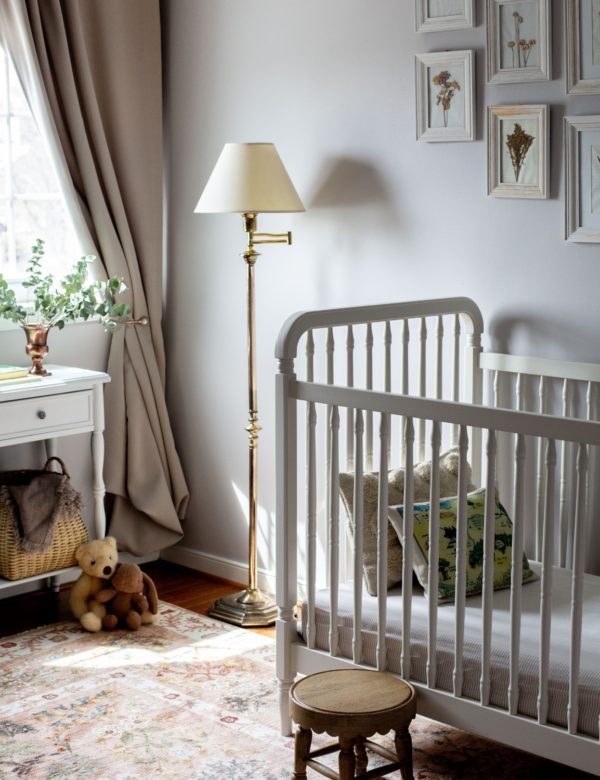
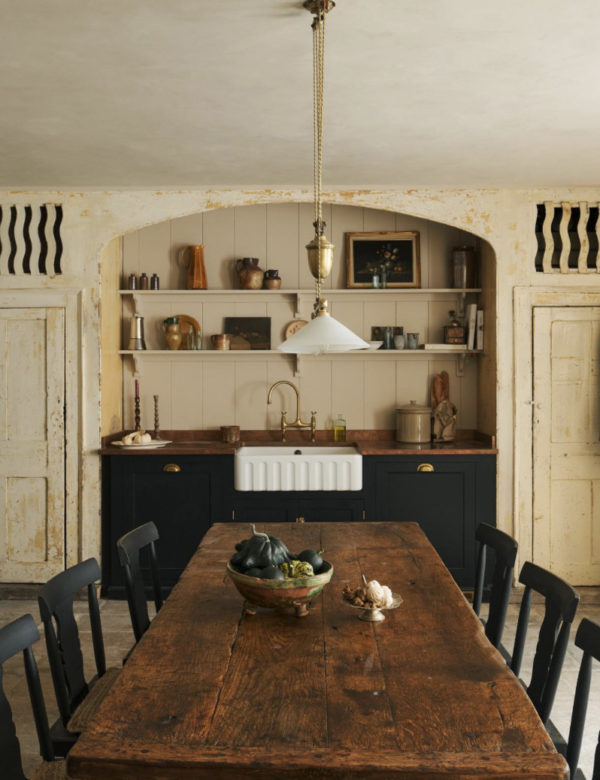
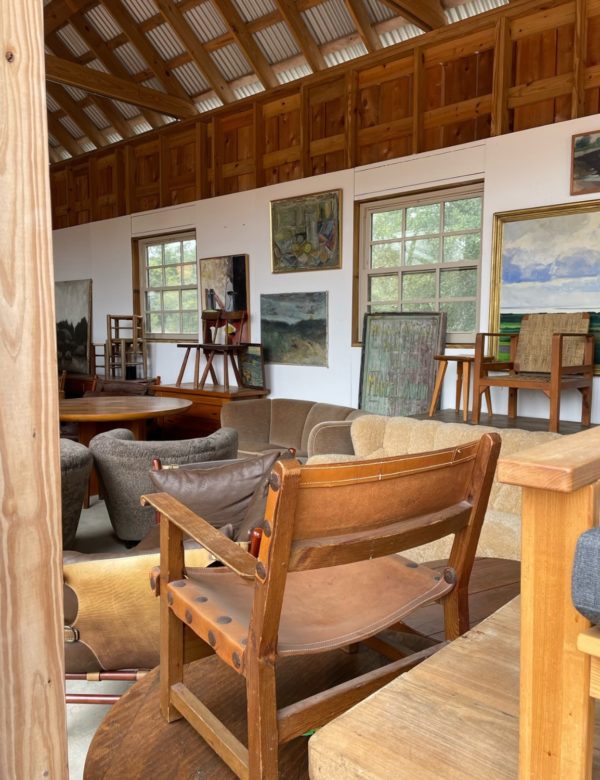
Such an informative post! I liked the way you have described the pros and cons of white concrete countertops before pouring them in a home. Thanks for sharing!
I appreciate you love your countertops, and then positive comments supporting concrete countertops, but I do find some information misleading.
Look at Omega sealer from CCI – Concrete Countertop Institute.
Also it would have been helpful had you explained in greater detail the options of precast vs pour in place.
ANR Concrete Studio (instagram anr.cs) manufactures GFRC precast concrete countertops. They are 3 times stronger than traditional concrete, say like a patio. We have never had a countertop crack on us, stains are rare but much more manageable than a marble surface.
Heat, concrete countertops with the right sealer can usually take up to 600F and we can ad custom features like trivets, quartz can not handle this.
Omega sealer is UV Stable, allowing concrete to be used in outdoor applications, quartz is not UV Stable, marble would easily stain.
I appreciate the support of the material, we need more of this!
I agree with Andrew. Our company has been using Omega sealer and our customers have had no complaints. Super helpful article and appreciate the information!
There is definately a lot to learn about this issue. I really like all of the points you have made.
http://homo-decerebratus.tumblr.com
These are some great information that you have shared here pros cons white concrete countertops. I really loved it and thank you very much for sharing this with us. You have a great visualization and you have really presented this content in a really good manner.If possible visit this website https://www.thebenchtopguys.co.nz/ to gain more idea or tips on the same.
Would you be willing to share the style and maker of your backsplash? It is beautiful! Thanks!
Course, thank you! Here is a link: https://amzn.to/3agCycW
As a concrete contractor im not a fan of white concrete BUUUT I can and will say that CRACKS are ok since they give character also they are (like Thanos said) “inevitable”
James
https://www.concretecontractorsspringfield.com/
This is really great content and information
Thanks for bringing this topic up. I have also been considering a white countertop option for a long time, but I had a couple of nuances because of which I thought about whether it was worth doing just such an option. But now I understand that this issue is completely resolved. Now I understand the nuances that I have to face if I still choose this countertop.
The “cost” part is misleading here. Concrete countertops are actually a LOT less than quartz, for example. Most places quote around $120/sq. ft. for quartz. You can pour a very good concrete countertop for less than half that.
Haha thanks Jim, I have lived with it for 10 years. I think that provides me with the research! ;)